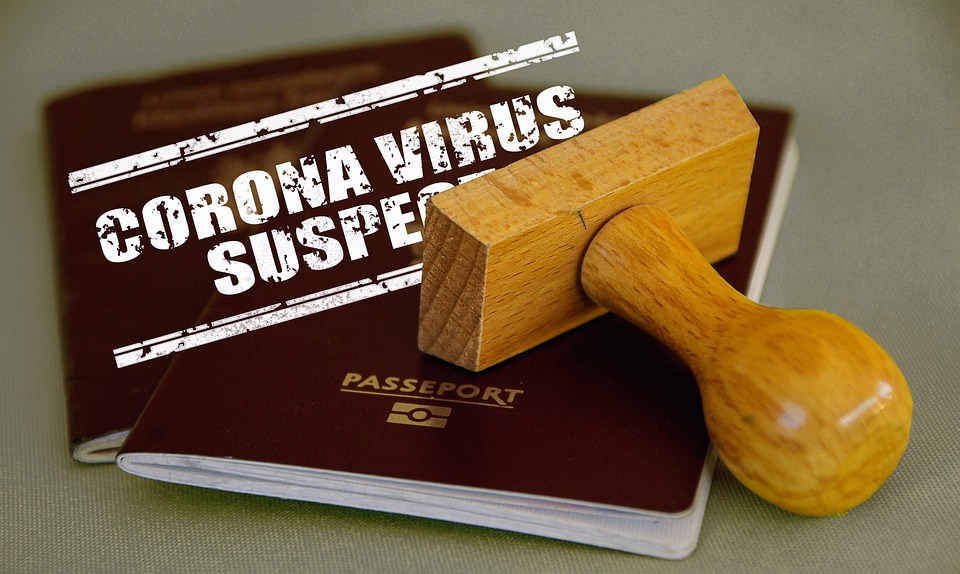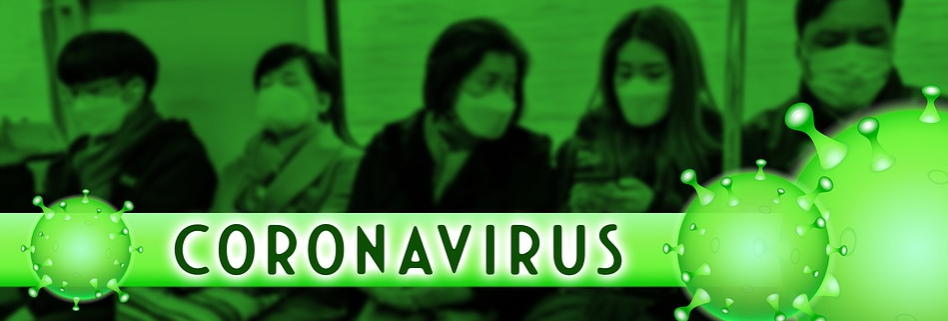Following the coronavirus scare amidst the false and half baked information in social media, we at goodlifepedia decided to get you some authentic information about this virus from a respiratory and pulmonary critical care specialist and also a medical writer, Dr Siddharth Waghmare, MD,DnB, FPCC.
This week team goodlifepedia caught up with Dr Waghmare to present a detailed guide on corona virus. This post is an excerpt from the interview
Q) Hello Dr Waghmare, thank you for accepting our interview proposal. Let us start from the basics. What actually is this Coronavirus? How it originated all of a sudden?
See this virus which right now is the talk of the town is officially called SARs-CoV-2. It belongs to the family of coronaviridae. The disease it causes is called COVID-19.
It was first reported in Wuhan, Hubei, China. A group of people who visited a fish market in Wuhan became sick. This fish market also sold non-aquatic animals. Soon they developed pneumonia. The health authorities could not classify this virus. It became evident it was a new entity.
After studying the genetic make-up of the new virus, things became a bit clear. It was a member of the coronaviridae family. It shared about 86% of its genetic material with the coronavirus that affects the bats.
Don’t get me wrong, bats are not responsible for the spread of the disease. When the outbreak took place the bats were hibernating (sleeping). Besides, the coronavirus that affects the bats is harmless to humans.
There is some unknown intermediate host, in whom the virus acquired new talents. It is postulated that the virus acquired the capacity of infecting humans in this intermediate host.
Q) Okay what are the warning symptoms?
The clinical spectrum of COVID- 19 is broad. It can cause mild disease like the common cold and can even lead to respiratory distress. The clinical spectrum of COVID-19 is as follows:
Mild disease
The disease is like flu / common cold.
Mild pneumonia
The patient has pneumonia but is not that serious
Severe pneumonia
In this case, the patient is very ill, breathless, confused. Such a patient may require oxygen or a ventilator.
Acute respiratory distress syndrome
These patients are extremely breathless. They develop chest X-ray changes and have low levels of oxygen in their blood. Such patients need urgent ICU admission and require invasive ventilation
Sepsis
In this case, the infection spread to all the organs of the body via the blood. As a result, the organs are start malfunctioning.
Septic shock
Along with sepsis, the patient’s blood pressure falls. The patient requires fluid and medicines (vasopressors) to maintain his blood pressure. The fall in blood pressure leads to multiple organ failure.
Visit your doctor if you have:
i) A travel history to China, South Korea, Italy, Spain, France in the last 14 days
ii) You have symptoms of fever, cough, and breathlessness
iii) You have been exposed to a confirmed case of coronavirus.
iv) If you are a healthcare worker ( doctor, nurse, ward boy, etc.) who was involved in taking care of COVID- 19 patients.
v) If you have symptoms and you have other comorbid illnesses like high blood pressure, heart disease, and age more than 60 years.

Q) What preventive measures can we take?
Before I tell you what precautions you must take, I think it is a good idea for you to understand how the virus spreads.
The mode of spread of the virus is by droplet infection and via fomites. Coughing and sneezing catapults secretions from the lower respiratory tract into the external environment. Infection results from the inhalation of these droplets.
Coughing, sneezing and talking leads to aerosol generation. These aerosols deposit on the surface of objects like tables, handles, chairs, etc. If you happen to touch these objects and later touch your eyes, mouth or nose, you will get infected.
The precautions you can observe to reduce the risk of infection are:
i) Hand washing
- Regularly wash your hands with soap and water or alcohol-based sterilizer
- Do not touch your eyes, nose, and mouth unnecessarily.
ii) Cough Etiquettes
- Cover your mouth while coughing and sneezing with the back of your elbow ( cubital fossa)
- Do not use the palm of your hands to cover your mouth.
- If you do that, quickly wash them
iii) Keep a safe distance
- If you see someone coughing keep a safe distance from that person. At least keep a distance of 1-meter from such a person.
- 1-meter is the distance a droplet nuclei can travel.
iv) Wear masks only if you have a cough
- Don’t unnecessarily wear masks
- A mask should not be worn for more than 20 minutes
- Touching a soiled mask can make you sick.
v) Avoid non-essential travel
- Travel only when essential.
- Avoid going to over crowded places.
vi) Do not attend social functions
In a social gathering, you have no control over whom you are exposed to.
A person who has traveled to one of those areas affected by COVID-19 may be a part of that crowd.
A patient starts to shed the virus 24 to 48 hours before he/she develops symptoms. In other words, a patient in infectious even before he becomes aware of his illness.
Therefore, you should skip these events for your good.
If you have the option of working from home, nothing like it. Ask your boss about it ASAP.

vii)Do not eat outside
Eat only homemade (veg/non-veg) food.
You need not give up eating non-veg foodstuffs. As long as it is homemade and thoroughly cooked, there is no problem in eating non-veg.
Contrary to popular belief, there is no evidence to suggest that eggs, chicken, and mutton spread the disease.
Please do understand these measures can only reduce the risk of infection not eliminate the risk. After all, it is difficult to control the air you breathe and you cannot avoid touching stuff. Nevertheless, it is always better to be safe than sorry.
Q) Okay thank you for this detailed preventive guide. Kindly aware us on how detected patients treated once confirmed ?
The diagnosis of COVID-19 is based on:
i)History of travel of countries where there are confirmed cases of coronavirus
ii) History of exposure to a confirmed case of coronavirus, and
iii) Real-time polymerase chain reaction test performed on throat or nasal swabs.
The problem with COVID-19 is that we don’t know a lot of things yet. One of those things is the treatment. Multiple drug trials are going on. But no success as of yet. Several candidate drugs like lopinavir/ ritonavir ( HIV drugs), tocilizumab, TZLS-501 are under trial.
At the moment, the treatment offer to confirmed cases of COVID-19 is just symptomatic. They are non-specific treatments given as per the patient’s symptoms. Despite the lack of specific treatment, some patients are recovering from the disease with just symptomatic treatment.
Q) Please share your experience (if any) treating or screening patients.
I recently was examining a patient who returned from the Middle East. He was there for a long time for employment purposes.
When he arrived in India he has no symptoms. He came to me because the doctors abroad found some lesion in his chest X-ray. He told me about his travel abroad only after I quizzed him.
He has a little cough but was healthy otherwise. I did not want to take any chances with his health so I referred him to viral research and diagnostic laboratory.
He is yet to follow up. So fingers crossed.

Q) As a doctor, what would be your suggestions and advice to our readers?
I think I have already shed some light on preventive measure. However to summarize the discussion, I would request everyone to be alert, not afraid.
In your quest for knowledge about coronavirus please refer to valid information sources like the CDC website, the ministry of health and the welfare website (India).
Do not spread rumors and refrain yourself from spreading false news. Here are a few myths circulating in the entire country due to lack of awareness:
- Hand washing is more important than wearing a mask. I see a lot of people wearing different types of masks. Some are surgical, some are N95 mask (or at least they claim to be) and some are just mask made out of fabrics. Not just that, they wear a single mask throughout the day. Believe me, you are harming yourself more with these masks. Only a person who is coughing should wear a mask.
- I know alcohol-based sanitizers are out of stock in the market. You don’t need them. A bar of simple soap is good enough.
- Drinking alcohol is not going to cure the disease. It is true alcohol destroys the virus but only if it is on a surface of inanimate objects. Once the virus gains entry into your body, it’s a completely different ball game. Alcohol will not affect it.
- You can eat non-vegetarian food provided it is cooked properly.
- Flu vaccine is not going to prevent COVID-19. It works only on influenza. However, that should not deter you from getting vaccinated. This coronavirus scare has completely eclipsed the problem of influenza. There are multiple cases of influenza that are going unnoticed. Taking a flu shot is a good idea.
- Many people believe that hot weather can reduce the prevalence of coronavirus. This is wrong. There is no connection between temperature and COVID-19
Q) Thanks for busting these myths. Do you suggest any change in diet?
No. there is no need to change your diet. Have a balanced diet. Try to eat things that are cooked well. Stay away from stale foodstuff and drink plenty of clean water.
Well thank you Dr Waghmare for these very informative insights about the virus. Hope this post will help in raising some awareness
Thanks a lot for inviting me here. I wish all the readers a healthy year ahead.
Some important resources:
2. CDC website
3. Ministry of health and the welfare
The Helpline Number for corona-virus : +91-11-23978046
The Helpline Email ID for corona-virus : ncov2019@gmail.com
